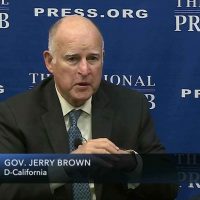History is full of reasons to love free markets.
They reward hard work and catalyze innovation, providing technology and comforts previously unimaginable to the ordinary person.
A new report by Anthony Kim and one of us (Patrick Tyrrell) of The Heritage Foundation shows just how Mississippi workers benefit from increased economic freedom when trade barriers fall.
The Mississippi Development Authority makes no bones about it. The Magnolia State is the “perfect home” for business and investment for myriad reasons.
Mississippi is one of the most tax-friendly states, and the cost of doing business there is low. Exports have grown more than 300 percent (in nominal dollars) since 2000.
A vital part of a free market includes the unencumbered sale and purchase of goods and services, free from most taxes such as tariffs, non-tariff barriers, and other regulations. Such an environment enables business owners to remain competitive, while not having to cut through bureaucratic red tape in order to reach their destination marketplaces.
More open trade with Mexico and Canada benefits Mississippi farmers and business owners by increasing the cost-effectiveness of trade. Mississippians have benefited from employment growth in the post-NAFTA economy, with 70,000 new jobs created since 1994.
Consumers also benefit from the lower prices they pay for goods and services in a competitive free market.
Unfortunately, certain trade barriers remain in the U.S. economy, as the report points out:
Americans are gouged on a daily basis by double-digit taxes on imported products, such as shoes and T-shirts.
In 2016, the average U.S. tariff rate for shoes and clothing was 13.1 percent—which is more than 13 times higher than the average tax on other imports.
Clothing and shoes account for 5 percent of U.S. imports, yet duties on textiles and apparel generate 40 percent of U.S. tariff revenue.
The authors estimate U.S. textile and apparel tariffs cost Mississippians $400 million per year.
These staggering figures should infuriate Americans who pay inflated prices for textiles and apparel, not because of high production costs, but rather to insulate inefficient domestic producers from competition, or simply to protect the status quo.
Read the full story from The Daily Signal
Want more BFT? Leave us a voicemail on our page or follow us on Twitter @BFT_Podcast and Facebook @BluntForceTruthPodcast. We want to hear from you! There’s no better place to get the #BluntForceTruth.







